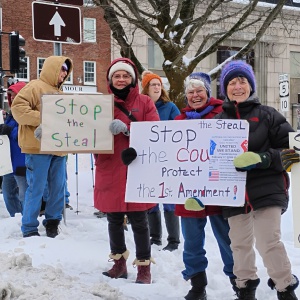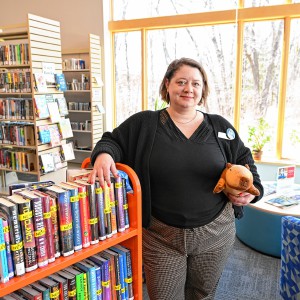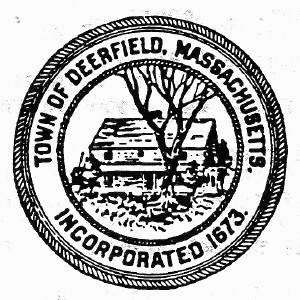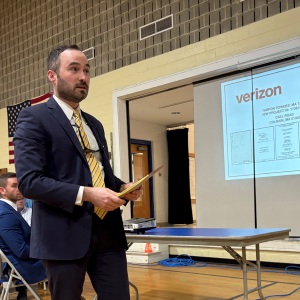Region lands $4.6M to overhaul plaza, manage watersheds
| Published: 08-10-2024 8:32 PM |
GREENFIELD — A reimagining of the Lord Pond Plaza, several floodplain management efforts and numerous other climate-resiliency projects are slated to begin as millions of dollars in Municipal Vulnerability Preparedness (MVP) program grants head to Franklin County and the North Quabbin.
The largest award in the region — and the second-highest in the state — is $3 million heading to Athol, as the town undertakes an extensive renovation of the 6-acre Lord Pond Plaza by unearthing the buried Mill Brook, creating wetlands and pollinator gardens, among other improvements to address inland flooding and tackle what Town Manager Shaun Suhoski called “an urban heat island” by adding green spaces.
The current property, surrounded by Main, Exchange, South and Freedom streets, is a paved plaza serving a combination of public buildings and private businesses. The Mill Brook, a perennial stream, flows under the plaza and that portion will see the light of day once again when the project is finished.
“It looks like it could be a scene from ‘The Walking Dead.’ You hate to say that about the town you work in, but it’s dated and it really needs work,” Suhoski said. “This is a really innovative plan and I give great credit to our Town Planner Eric Smith, he’s really spearheaded this, along with our Public Works Director Dick Kilhart.”
In total, the project is expected to cost up to $4 million and the town is identifying some other funding streams to cover the remaining costs. This fiscal year, $1 million of the grant will be disbursed to the town and then the remaining $2 million will be spent in fiscal year 2026. Athol will cover the remaining costs.
“We’ll come up with a plan for fiscal year ’26 to tap into other funds that we have available,” Suhoski said. “We’re very confident and feel good about this project.”
Suhoski said the town will finalize details this fall, and hopefully begin work on the project in 2025 and finish in 2026.
The second-highest award of $636,025 is heading to the Franklin Regional Council of Governments (FRCOG), which will undertake a two-year, two-pronged project related to the Pioneer Valley’s river watersheds. The first will focus on implementing climate-resiliency measures from the agency’s 2019 “A Framework for Resilience” publication, which focuses on the Deerfield River and its communities, according to Land Use and Natural Resources Program Manager Kimberly MacPhee.
Article continues after...
Yesterday's Most Read Articles
 Local ‘Hands Off!’ standouts planned as part of national effort
Local ‘Hands Off!’ standouts planned as part of national effort
 Shelburne Selectboard determines police detective will retain job
Shelburne Selectboard determines police detective will retain job
 Local libraries react to state funding cuts, federal administrative leave
Local libraries react to state funding cuts, federal administrative leave
 Incandescent Brewing now open in Bernardston
Incandescent Brewing now open in Bernardston
 Cooking up an expansion: Cocina Lupita eyes second location in Turners Falls
Cooking up an expansion: Cocina Lupita eyes second location in Turners Falls
 ‘She is our future’: Thirty years after permitting women to join, Montague Elks is almost entirely women-led
‘She is our future’: Thirty years after permitting women to join, Montague Elks is almost entirely women-led
With the grant, FRCOG will “begin working on identifying pathways that communities can work cooperatively across town boundaries to build climate-resiliency at both the town level and the watershed-scale level,” MacPhee said. “New funding will allow us to convene that coalition … and implement the action items that were identified in the previous planning document.”
Among the recommendations in the report are using “nature-based solutions” at the parcel, town, sub-watershed and entire watershed levels, which include infrastructure like bioswales, planting trees and permeable parking lots. Other, less tangible opportunities include protecting land through grants and incentives for floodplain restoration or using solar bylaws to protect forest habitat, which can absorb rainwater and create a buffer against storms and wind.
The second part of the project will see a full regional effort, as FRCOG partners with the Pioneer Valley Planning Commission to form a coalition of town officials, nonprofits and community-based organizations to begin the “conversation about how climate change and flooding impact the communities along the Connecticut River.”
Through that process, MacPhee said they hope to create another watershed resilience model for urban communities in the same way that the Deerfield River’s “Framework for Resilience” is used for rural communities.
“The intent is to have this be something that can be used by multiple local officials, as well as planners and NGOs,” MacPhee said. “We’re very, very excited about this project. It’s really huge for our region.”
In Deerfield, the town received $170,300 to fund a hydraulic and hydrologic study of the Bloody Brook, which will identify where culvert replacements, green infrastructure and other climate-resilient projects can be done to mitigate flooding events. The grant application was driven by former Selectboard member Carolyn Shores Ness and Police Chief John Paciorek Jr.
“We’re elated to have funding to perform the necessary analysis of this watershed that impacts so many homes, businesses and farms in our community,” Selectboard Chair Tim Hilchey said in a statement. “It’s a critical first step and a launching pad for future improvements.”
Paciorek thanked the state for its efforts in helping communities address these pressing challenges.
“It’s a credit to our legislative delegation and the governor’s team that they understand the gravity of the situation with respect to flooding that our residents are experiencing all too often here in Deerfield,” he said.
Other MVP grants in the region include:
■Ashfield will use $166,001 for a “rural climate resilience and living culture project.”
■Greenfield received $37,830 for plantings at Millers Meadow.
■Orange earned $390,290 for a solar and battery energy storage system, as well as an outdoor classroom at Fisher Hill Elementary School.
■Shutesbury was awarded $222,105 for a solar system and battery backup for its new library.
Chris Larabee can be reached at clarabee@recorder.com.










 New panel to review senior housing proposals in Deerfield
New panel to review senior housing proposals in Deerfield Shutesbury reviewing how to improve safety on Lake Wyola in wake of accident last summer
Shutesbury reviewing how to improve safety on Lake Wyola in wake of accident last summer Colrain zoning board approves variance for Call Road cell tower
Colrain zoning board approves variance for Call Road cell tower
